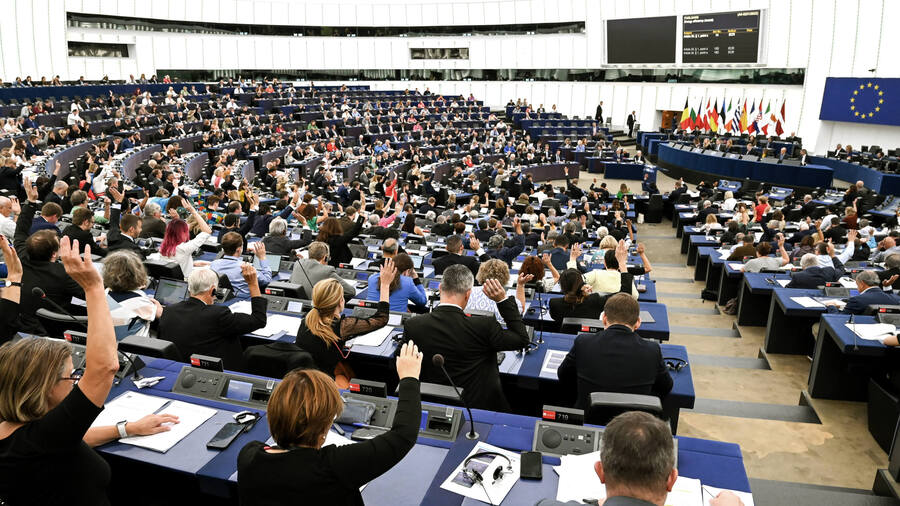Recent international events have underscored the resilience of the West and its commitment to defending democratic values and Ukraine. Despite internal divisions, a bipartisan Congressional decision in the United States allocated $100 billion in foreign aid to support Ukraine’s defense efforts against Russia. This decisive action, supported by Republican and Democratic majorities, demonstrated a unified stance against Russian aggression.
Author: Szilárd Szélpál
Meanwhile, in Europe, the European Parliament made a significant statement during its recent session in Strasbourg. With an overwhelming majority of 94%, the Parliament passed a resolution denouncing Russia’s March presidential elections as undemocratic and illegitimate. This resolution, supported by 493 MEPs and opposed by 11, with 18 abstentions, is a notable milestone in EU-Russia relations, highlighting concerns over Russia’s refusal to allow independent election observers and its actions in illegally occupied Ukrainian territories.

The resolution also calls on EU member states to reassess their bilateral relations with Russia, focusing on regional peace efforts and human rights concerns. Hungarian Prime Minister Viktor Orbán’s congratulatory message to Vladimir Putin drew criticism within the EU, highlighting divisions within the bloc. Four of the 11 MEPs who voted against the resolution were from the Fidesz-KDNP coalition, which bears the name of Viktor Orbán, while the other MEPs from the Hungarian government parties voted to abstain.
Despite challenges, Europe has remained resilient in the face of Russian aggression. The continent has diversified its energy supply chains to mitigate dependence on Russian gas imports, demonstrating its ability to adapt and persevere. Additionally, the European Commission is working on further sanctions targeting arms supplies to Russia and companies involved in supporting Russia’s war efforts.
In conclusion, while Europe faces ongoing challenges, its response to Russian aggression reflects a steadfast commitment to defending democratic principles and protecting its interests.
Cover photo credit: The European Parliament

Szilárd Szélpál has been serving as an environmental expert in the European Parliament since 2014, utilizing his expertise to influence policy-making and champion sustainable practices across Europe. Additionally, Szilárd possesses a profound understanding of foreign affairs, providing strategic advice and contributing to the development of policy initiatives in this domain.



